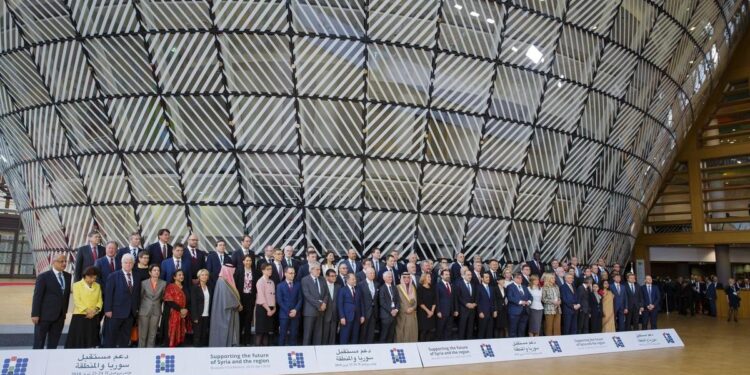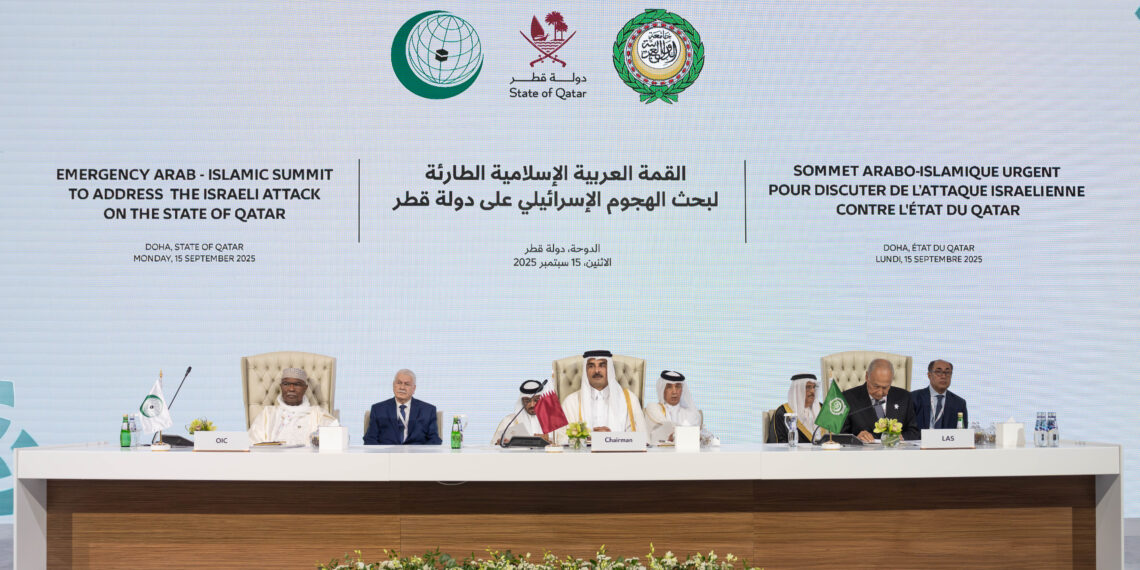Donor countries, including the European Union, announced the allocation of €5.8 billion in aid to Syria during the annual conference organized by the EU in Brussels to support Syria’s rebuilding efforts following the ousting of former President Bashar al-Assad. European Commissioner Dubravka Šuica clarified that this amount includes €4.2 billion in grants and €1.6 billion in loans, expressing pride in this collective pledge. The EU had previously committed €2.5 billion until the following year, before increasing the total to €5.8 billion to meet growing needs.
European Commission President Ursula von der Leyen affirmed that the Syrian people, both inside and outside the country, urgently need additional support to restore their normal lives, noting that the EU raised its contribution to €2.5 billion for 2025 and 2026. She added that Syrians’ hopes are now achievable, though the road to stability remains long despite signs of hope, warning of entities opposing the success of the peace process in the country.
For her part, EU foreign policy chief Kaja Kallas announced the Union’s intention to ease sanctions on Syria, emphasizing that the conference represents a message of solidarity to support a peaceful, Syrian-led political transition. She highlighted the allocation of €750 million to assist populations inside Syria and refugees in Lebanon, Jordan, and Iraq, with an equivalent amount to support refugees in Turkey, particularly amid recent escalations on the Syrian coast.
Germany pledged an additional €300 million to provide humanitarian aid, support education and civil society, and assist refugees and host communities in neighboring countries. The United Kingdom also announced £160 million ($200 million) to cover Syrians’ basic needs, such as water, food, healthcare, and education, throughout 2025.
For the first time, the conference saw participation from a Syrian government delegation led by Foreign Minister Asaad al-Shaibani, who demanded the lifting of economic sanctions hindering the country’s recovery, asserting that their continuation harms the Syrian people. He stressed that the government is working to enhance national dialogue and reconciliation while preserving Syria’s sovereignty, territorial integrity, and the rights of all its citizens, rejecting any exploitation of minorities as the previous regime had done. He noted that Israel continues to violate Syria’s sovereignty by breaching the 1974 agreement, threatening the country’s security and stability.
This marks the ninth conference hosted by the EU since 2017, but the Syrian government’s attendance represents a significant shift compared to previous years, which saw Assad’s regime boycotted due to its policies during the civil war that began in 2011. While last year’s conference succeeded in raising €7.5 billion, the U.S. suspension of aid this year may reduce total pledges, with hopes that Arab countries will compensate for the shortfall. UN estimates suggest Syria will need decades to recover economically due to the scale of destruction.







